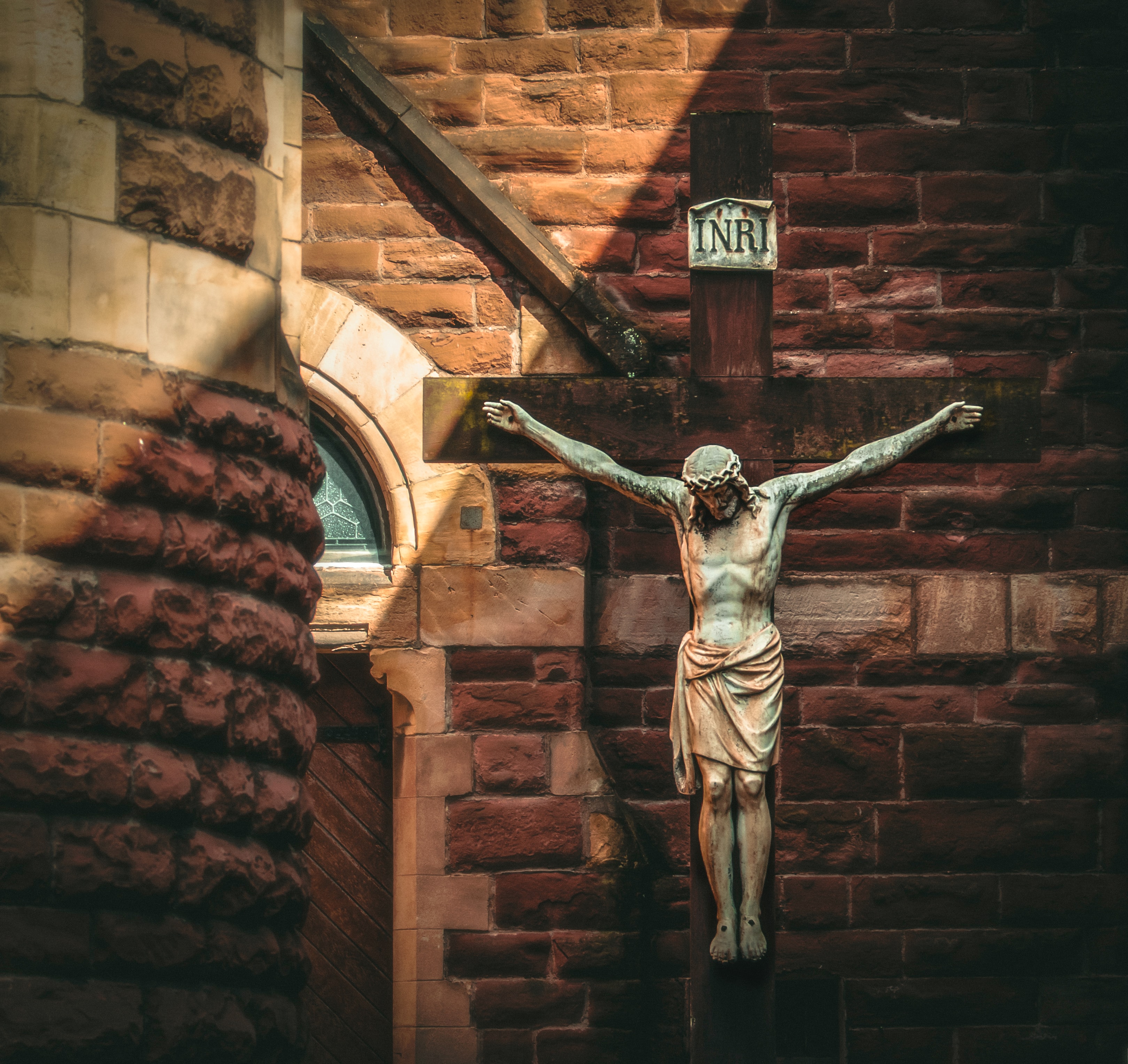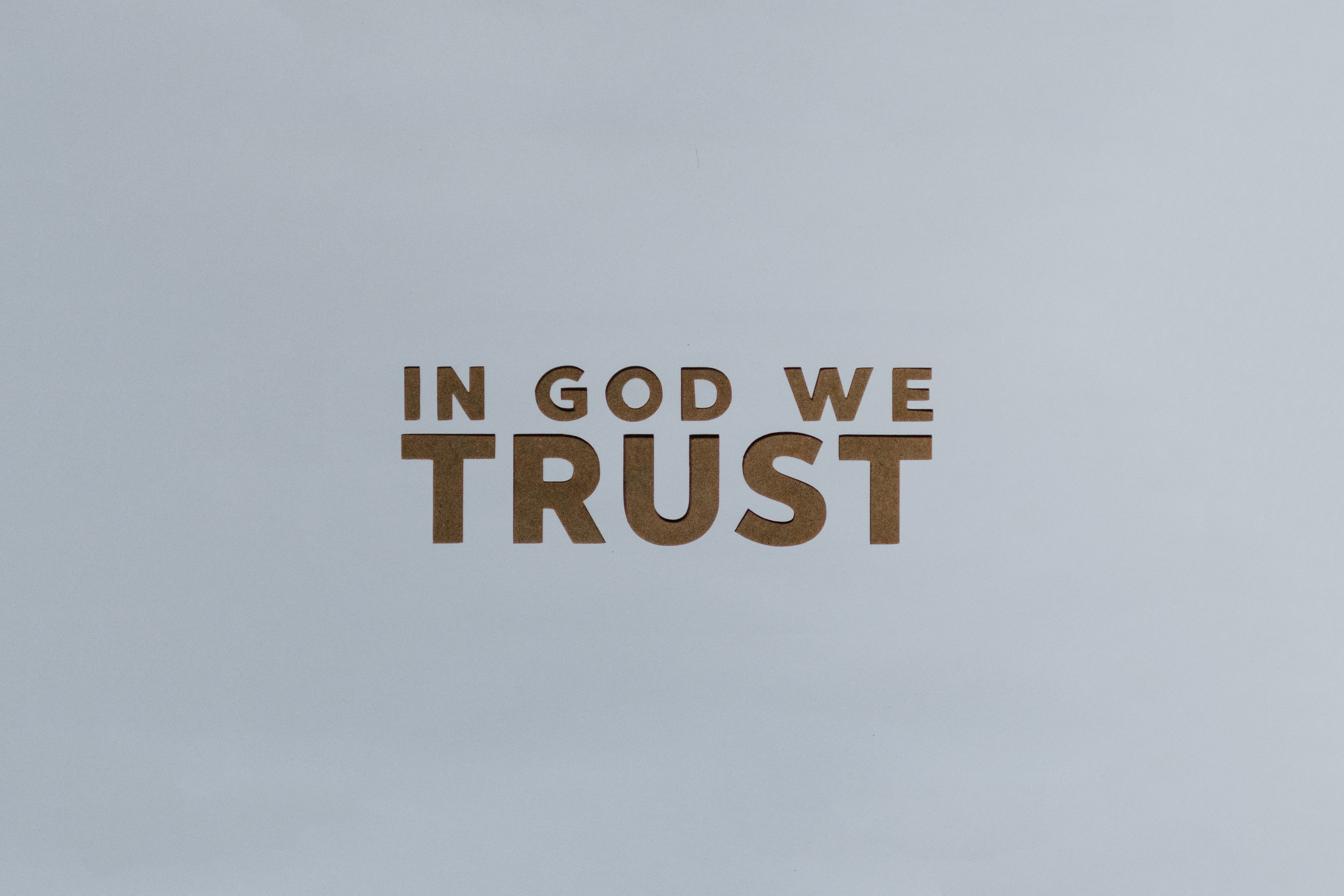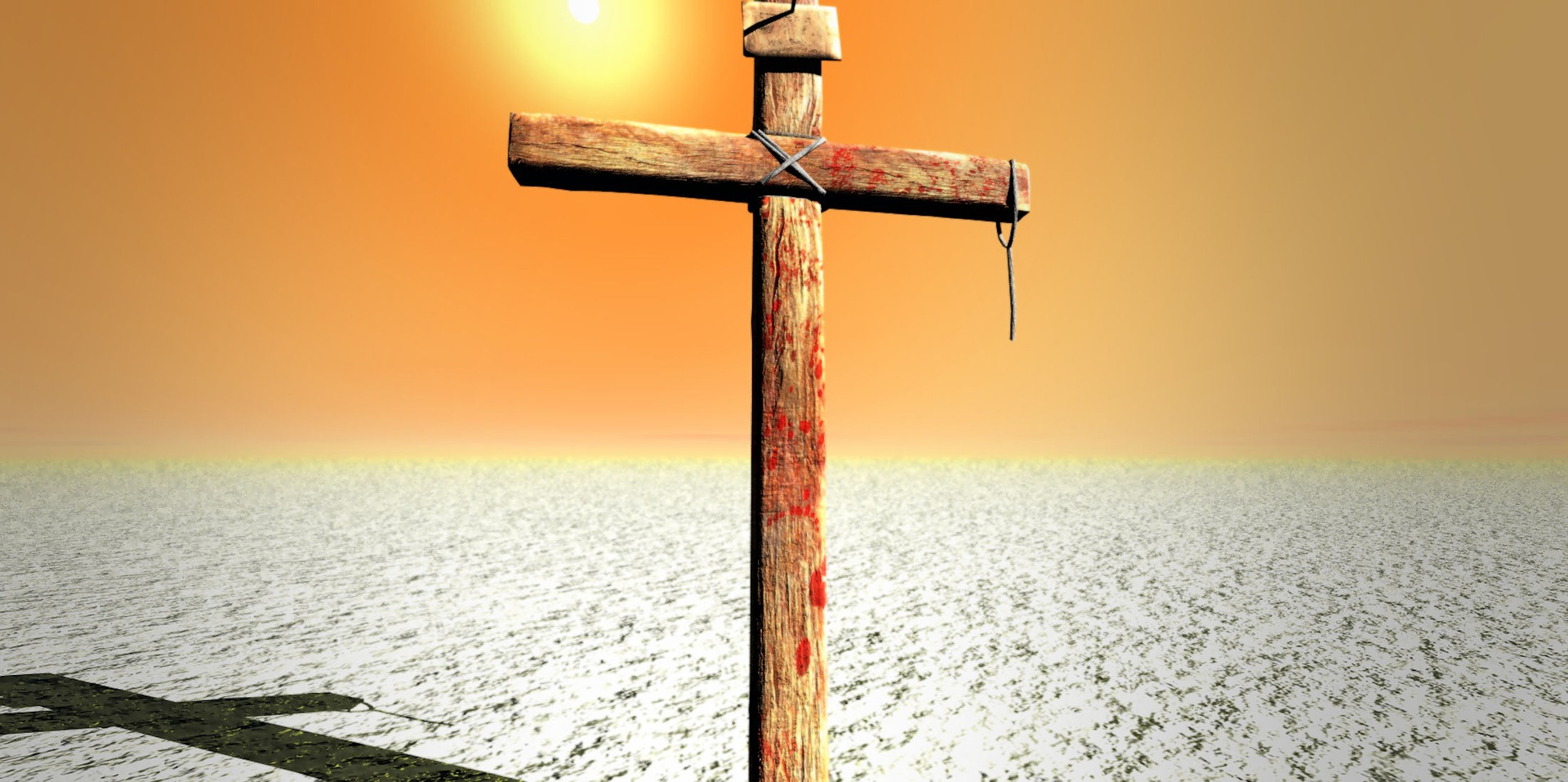During my Lenten devotions, I have stumbled across several ideas that I have been mulling over.
I was watching Fr. Mike Schmitz’s live-streamed Sunday Mass a few years ago and was taken aback by his observations. He said that death is one of the most difficult things to get through, to watch a loved one die, to grieve the death of a family member, or even face our own impending death. It is heartbreaking and heart wrenching. But there is something even worse than death, and that is to lose heart.
Our hearts can break from sadness and sorrow, they can be ripped from our very chest, but much worse than that is to be discouraged. To despair is worse than death because we have lost our hope in God.
In the same vein, I have been reflecting on the difference between concern and worry. Obviously, we all go through difficult times that yank us out of our routines, and made a horrible realities way too close for comfort. These moments also cause us to worry, whether it be about out finances, our health, our children…
The difference is that concern moves us to action. We spend time in prayer, talk to someone we trust and ask for the help we neeed. On the other hand, worry drives us to anxiety, and eventually, despair.
In today’s First Reading, God poured out blessings upon Abram. He made him the father of a host of nations, made him exceedingly fertile, promised to maintain His covenant with him, and gave him the whole land of Canaan. This new reality was so great that God even gave him a new name.
But let us recall that God did not give him these gifts instantaneously. He waited. Abram endured many hardships and suffered seemingly endless infertility before this great moment. God waited and chose His moment to act.
Perhaps you or I are in a time of waiting right now, too. We may be concerned, yes, but let us not fall into worry because Jesus is right here. He is right beside us, ready to raise us up, although he may choose to wait.
And here’s the clincher. After God showered Abraham with abundance, He said: “On your part, you and your descendants after you must keep my covenant throughout the ages.”
Could it be that God is waiting for us to turn our hearts back to Him and keep His covenant once again? I once saw this phrase on social media: “In the rush to return to normal, use this time to consider which parts of normal are worth rushing back to.” Hmmmm…
Fr. Schmitz encourages that even if God does not deliver us, that our hearts be like His. No conditions. If He saves us, we are His, and even if He doesn’t, we are still His. “Our hearts can be broken without being lost.” We want the miracle. We see others who were miraculously cured, but whether we are cured or not, we are still his. Daniel was spared the lion’s den, but Stephen was not spared stoning. Jesus begged that this cup would pass, yet was not spared crucifixion. May we say as Jesus did, “not my will, but yours be done.”
Durante mis devociones Cuaresmales, me he topado con varias ideas que he estado reflexionando.
Estaba viendo La misa dominical transmitida en vivo por el P. Mike Schmitz hace unos años y sus observaciones me sorprendieron. Dijo que la muerte es una de las cosas más difíciles de sobrellevar, ver morir a un ser querido, llorar la muerte de un miembro de la familia o incluso enfrentar nuestra propia muerte inminente. Es desgarrador y difícil. Pero hay algo aún peor que la muerte, y es desanimarse.
Nuestros corazones pueden romperse por la tristeza y el dolor, pueden ser arrancados de nuestro mismo pecho, pero mucho peor que eso es desanimarse. Desesperarse es peor que la muerte porque hemos perdido la esperanza en Dios.
En esta misma línea, he estado reflexionando sobre la diferencia entre inquietud y preocupación. Obviamente, todos pasamos por momentos difíciles que nos sacan de nuestras rutinas y hacen realidades horribles demasiado cercanas para nuestra comodidad. Estos momentos también nos preocupan, ya ue sea por nuestras finanzas, nuestra salud, nuestros hijos…
La diferencia es que la inquietud nos mueve a la acción. Pasamos tiempo en oración, hablamos con alguien en quien confiamos y pedimos la ayuda que necesitamos. Por otro lado, la preocupación nos lleva a la ansiedad y, eventualmente, a la desesperación.
En la Primera Lectura de hoy, Dios derramó bendiciones sobre Abram. Lo hizo padre de una multitud de naciones, lo hizo sumamente fértil, prometió mantener Su pacto con él y le dio toda la tierra de Canaán. Esta nueva realidad fue tan grande que Dios incluso le dio un nombre nuevo.
Pero recordemos que Dios no le dio estos dones instantáneamente. Esperó. Abram soportó muchas dificultades y sufrió una infertilidad aparentemente interminable antes de este gran momento. Dios esperó y escogió su momento para actuar.
Tal vez usted o yo también estemos en un momento de espera en este momento. Podemos estar preocupados, sí, pero no caigamos en la preocupación porque Jesús está aquí mismo. Él está justo a nuestro lado, listo para levantarnos, aunque puede elegir esperar.
Y aquí está el factor decisivo. Después de que Dios colmó a Abrahán con abundancia, dijo: “Cumple, pues, mi alianza, tú y tu posteridad, de generación en generación”.
¿Será que Dios está esperando que volvamos nuestro corazón a Él y guardemos Su pacto una vez más? Una vez vi esta frase en las redes sociales: “En la prisa por volver a la normalidad, utilice este tiempo para considerar a cuáles partes de la normalidad vale la pena regresar”. Interesante…
Padre Schmitz nos anima a que, incluso si Dios no nos libera, nuestros corazones sean como el suyo. Sin condiciones. Si nos salva, somos suyos, e incluso si no lo hace, seguimos siendo suyos. “Nuestros corazones pueden romperse sin perderse”. Queremos el milagro. Vemos a otros que fueron curados milagrosamente, pero ya sea que estemos curados o no, todavía somos suyos. Daniel se salvó del foso de los leones, pero Esteban no se salvó de la lapidación. Jesús rogó que pasara esta copa, pero no se salvó de la crucifixión. Que podamos decir como lo hizo Jesús, “no se haga mi voluntad, sino la tuya”.
Feature Image Credit: Levi Meir Clancy, https://unsplash.com/photos/jdIT3puximI
 Dr. Alexis Dallara-Marsh is a board-certified neurologist who practices in Bergen County, NJ. She is a wife to her best friend, Akeem, and a mother of two little ones on Earth and two others in heaven above.
Dr. Alexis Dallara-Marsh is a board-certified neurologist who practices in Bergen County, NJ. She is a wife to her best friend, Akeem, and a mother of two little ones on Earth and two others in heaven above.

 Elizabeth Tomlin is the author of Joyful Momentum: Building and Sustaining Vibrant Women’s Groups and contributing author to the Ave Prayer Book for Catholic Mothers. She is General Counsel for the Archdiocese for the Military Services, USA. Elizabeth is an Army wife and mother of three and currently lives in the DC area. She blogs at
Elizabeth Tomlin is the author of Joyful Momentum: Building and Sustaining Vibrant Women’s Groups and contributing author to the Ave Prayer Book for Catholic Mothers. She is General Counsel for the Archdiocese for the Military Services, USA. Elizabeth is an Army wife and mother of three and currently lives in the DC area. She blogs at 




 Merridith Frediani loves words and is delighted by good sentences. She also loves Lake Michigan, dahlias, the first sip of hot coffee in the morning, millennials, and playing Sheepshead with her husband and three kids. She writes for Catholic Mom, Diocesan.com, and her local Catholic Herald. Her first book Draw Close to Jesus: A Woman’s Guide to Adoration is available at Our Sunday Visitor and Amazon. You can learn more at
Merridith Frediani loves words and is delighted by good sentences. She also loves Lake Michigan, dahlias, the first sip of hot coffee in the morning, millennials, and playing Sheepshead with her husband and three kids. She writes for Catholic Mom, Diocesan.com, and her local Catholic Herald. Her first book Draw Close to Jesus: A Woman’s Guide to Adoration is available at Our Sunday Visitor and Amazon. You can learn more at 
 Sheryl is happy to be the number 1 cheerleader and supporter for her husband, Tom who is a candidate for the Permanent Diaconate in the Diocese of Kalamazoo. They are so grateful for the opportunity to grow together in this process. Sheryl’s day job is serving her community as the principal for St. Therese Catholic School in Wayland, Michigan. Since every time she thinks she gets life all figured out, she realizes just how far she has to go, St. Rita of Cascia is her go-to Saint for intercession and help. Home includes Carlyn, a very, very goofy Golden Retriever and Lucy, our not-so-little rescue puppy.
Sheryl is happy to be the number 1 cheerleader and supporter for her husband, Tom who is a candidate for the Permanent Diaconate in the Diocese of Kalamazoo. They are so grateful for the opportunity to grow together in this process. Sheryl’s day job is serving her community as the principal for St. Therese Catholic School in Wayland, Michigan. Since every time she thinks she gets life all figured out, she realizes just how far she has to go, St. Rita of Cascia is her go-to Saint for intercession and help. Home includes Carlyn, a very, very goofy Golden Retriever and Lucy, our not-so-little rescue puppy. 
 David Dashiell is a freelance author and editor in Nashville, Tennessee. He has a master’s degree in theology from Franciscan University, and is the editor of the anthology
David Dashiell is a freelance author and editor in Nashville, Tennessee. He has a master’s degree in theology from Franciscan University, and is the editor of the anthology 




 Leslie Sholly is a Catholic, Southern wife and mother of five, living in her hometown, Knoxville, Tennessee. She graduated from Georgetown University with an English major and Theology minor. She blogs at
Leslie Sholly is a Catholic, Southern wife and mother of five, living in her hometown, Knoxville, Tennessee. She graduated from Georgetown University with an English major and Theology minor. She blogs at 
 Deacon Dan Schneider is a retired general manager of industrial distributors. He and his wife Vicki have been married for over 50 years. They are the parents of eight children and thirty grandchildren. He has a degree in Family Life Education from Spring Arbor University. He was ordained a Permanent Deacon in 2002. He has a passion for working with engaged and married couples and his main ministry has been preparing couples for marriage.
Deacon Dan Schneider is a retired general manager of industrial distributors. He and his wife Vicki have been married for over 50 years. They are the parents of eight children and thirty grandchildren. He has a degree in Family Life Education from Spring Arbor University. He was ordained a Permanent Deacon in 2002. He has a passion for working with engaged and married couples and his main ministry has been preparing couples for marriage.